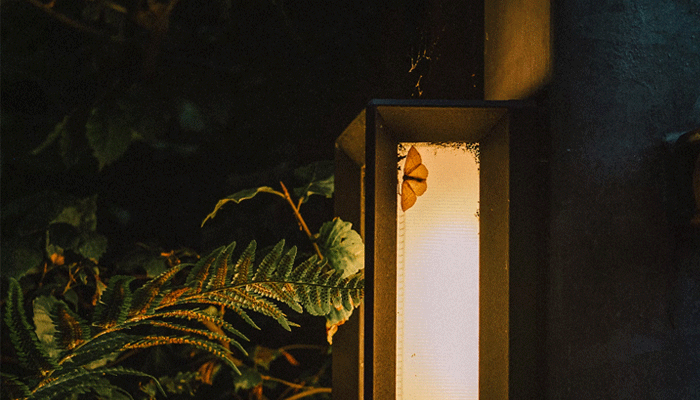Are bugs attracted to light? Study rejects long-held belief
Researchers say when people turn on lights, it confuses insects
Drawn like a moth to a flame or not?
This famous idiom has gone out of date now as new research has found that flying bugs are not attracted to lights but rather hate them. This refutes the common belief that dates back to the Roman Empire, approximately one century AD.
It found that when insects flutter around outdoor lanterns, lampposts, and porch lights at night, they are really turning their backs to the light rather than flying directly toward a light source, the New York Post reported.
According to a study published in Nature Communications, when bugs are exposed to artificial lights, they are unable to distinguish between up and down.
Researchers believe when people turn on lights, it confuses insects, which normally use the brightest object they can see in the sky to tell which way is up.
According to the study, insects turn their backs, or the top part of their bodies, towards light sources because they confuse artificial lights for the sky.
This causes them to get stuck in an "exhausting cycle" that causes them to reorient in space.
Using high-speed motion-capture cameras, the researchers recorded the movements of eleven distinct insect orders in two different settings: a controlled lab experiment and the cloud forest of Costa Rica, which is home to a wide variety of insect species.
The researchers recorded more than 477 videos and used computer vision tools to reconstruct the flight paths of their bug test subjects in 3D modelling. Nearly all the insects they recorded turned their backs to the light source.
"This has been a prehistorical question. In the earliest writings, people were noticing this around the fire," Jamie Theobald, report author and Florida International University associate professor of biology, said.
"It turns out all our speculations about why it happens have been wrong, so this is the coolest project I’ve been part of."
-
Shanghai Fusion ‘Artificial Sun’ achieves groundbreaking results with plasma control record
-
Polar vortex ‘exceptional’ disruption: Rare shift signals extreme February winter
-
Netherlands repatriates 3500-year-old Egyptian sculpture looted during Arab Spring
-
Archaeologists recreate 3,500-year-old Egyptian perfumes for modern museums
-
Smartphones in orbit? NASA’s Crew-12 and Artemis II missions to use latest mobile tech
-
Rare deep-sea discovery: ‘School bus-size’ phantom jellyfish spotted in Argentina
-
NASA eyes March moon mission launch following test run setbacks
-
February offers 8 must-see sky events including rare eclipse and planet parade












